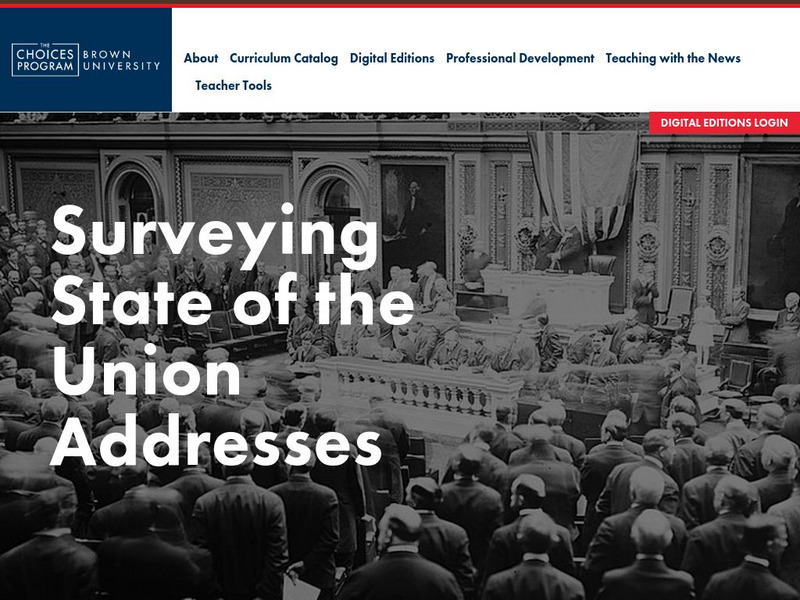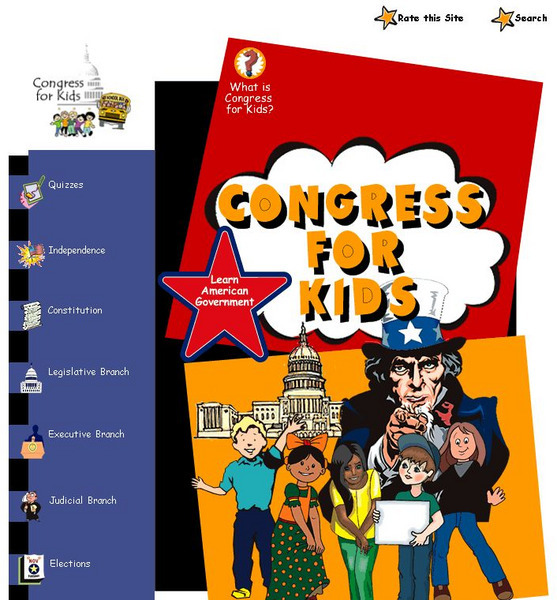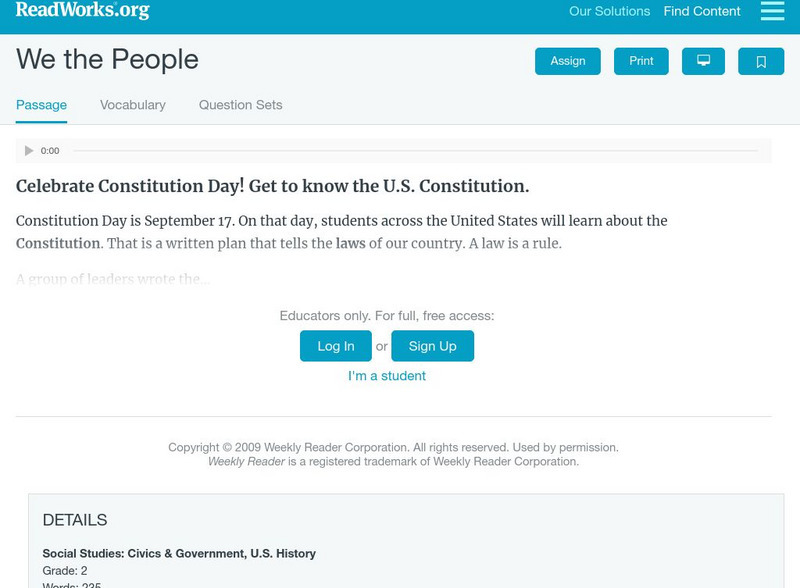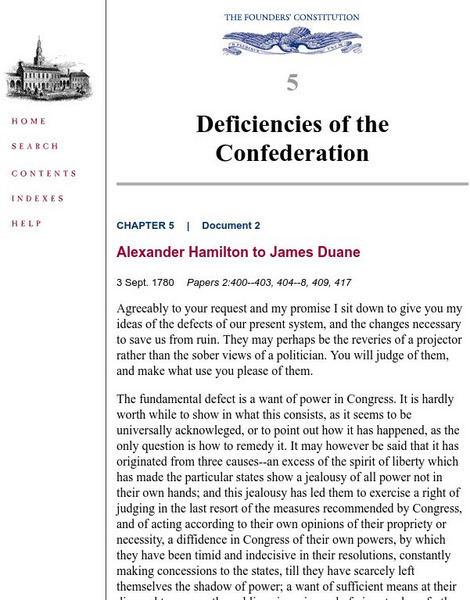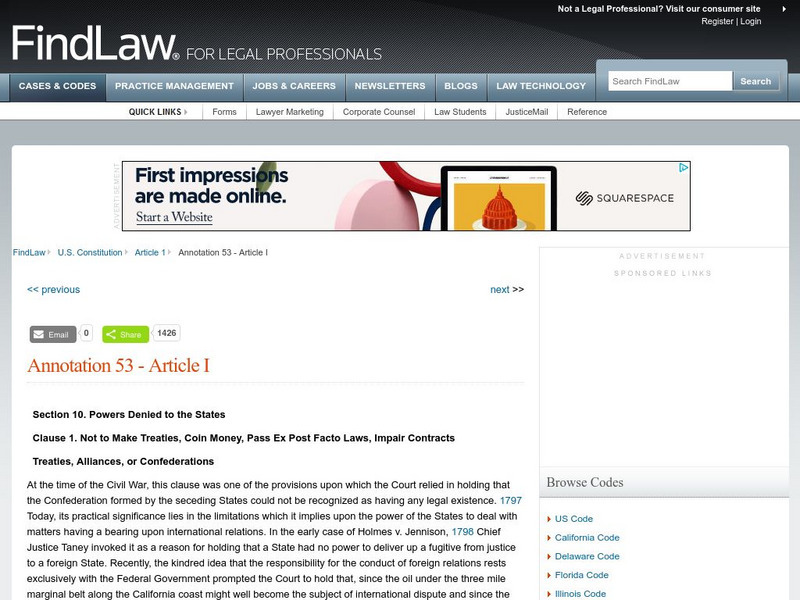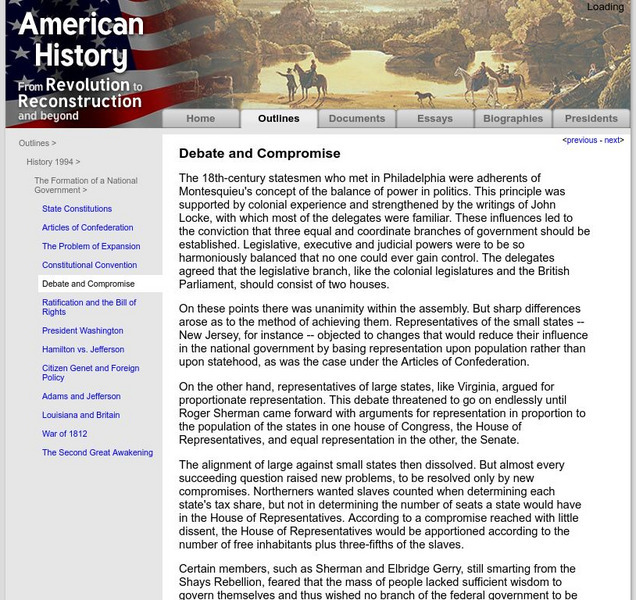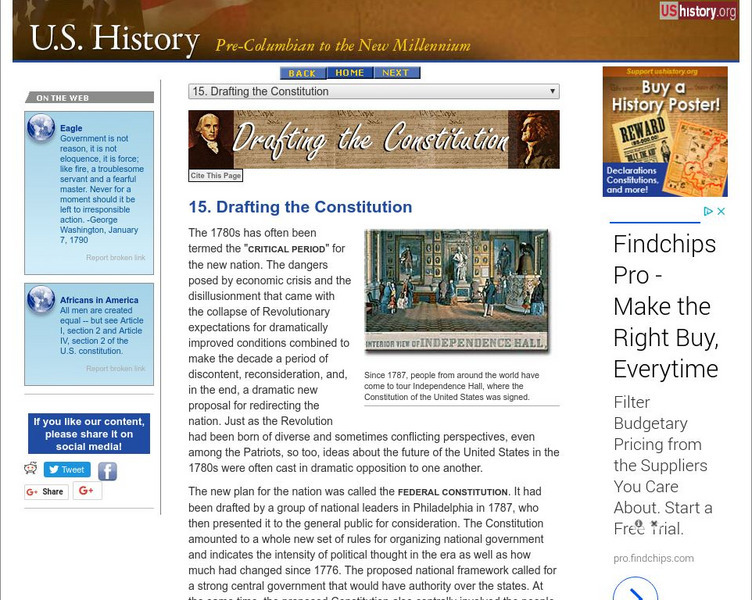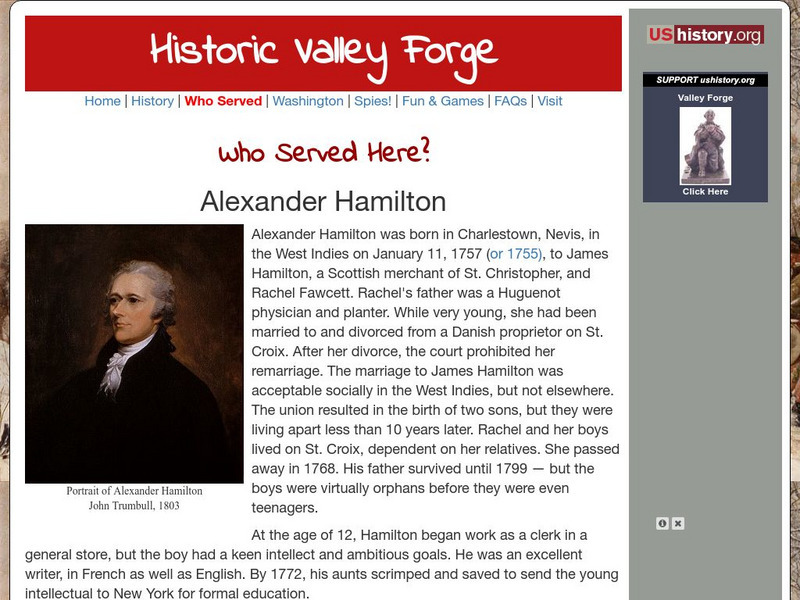Digital History
Digital History: Completing a Final Draft
Read about the committee that produced a final draft of the Constitution to present to the entire Constitutional Convention. Find out what the delegates to the convention kept in the final draft and what they changed.
US Government Publishing Office
U.s. Government Publishing Office: Eighth Amendment Further Guarantees in Criminal Cases [Pdf]
This resource provides the various court rulings as to what has been interpreted as "excessive bail", etc.
Choices Program, Brown University
Choices: Teaching With the News: Surveying State of the Union Addresses
Learning module with multi-media resources helps students understand the constitutional basis and history of the State of the Union Address, identifying important historic themes and significant topics. Includes video, graphic...
The Dirksen Congressional Center
Congress for Kids
Take a tour of the federal government with Uncle Sam and learn the story of the Declaration of Independence, the Constitution, the three branches of government, and elections. Along the way learn how laws are made, about the Bill of...
Other
Freedom Forum: Lesson Plans for the First Amendment
These lessons address constitutional principles and contemporary issues involving the First Amendment. They intend to have explore how freedoms began and how they operate in today's world. Young scholars will discuss just how far...
iCivics
I Civics: We Got This!
In this lesson plan, students explore how colonial government was both similar to and different from government in Britain and how it influenced the government we have today.
Read Works
Read Works: We the People
[Free Registration/Login Required] An informational text about the Constitution of the United States. A question sheet is available to help students build skills in reading comprehension.
University of Chicago
The Founders' Constitution: Alexander Hamilton to James Duane
The original text from the University of Chicago Press of a 1780 letter from Alexander Hamilton to James Duane, who later became a delegate to the Constitutional Convention, on the weaknesses of the existing U.S. government under the...
Read Works
Read Works: Branching Out
[Free Registration/Login Required] An informational text about Constitution Week and the three branches of government. A question sheet is available to help students build skills in reading comprehension.
The Dirksen Congressional Center
Congress for Kids: Ratifying the Constitution
The process for ratifying the United States Constitution is explained in simple terms. Suggestions for research projects, resource links, and some activities are included. The rest of the site has lots more information on the U. S....
Digital History
Digital History: Creating New State Governments
See how state constitutions were the incubator of ideas that eventually became embodied in the U.S. Constitution.
Constitutional Rights Foundation
Constitutional Rights Foundation: Centralized vs. Decentralized Rule: The Articles of Confederation
Activity comparing the Articles of Confederation to the Constitution. Using a variety of articles, students research and create a chart with explanations and critical comparisons of the two governing documents.
Constitutional Rights Foundation
Constitutional Rights Foundation: War and International Law: America's Foreign Policy: Military Intervention
Identify the considerations of the government when it comes to using military force in a situation that constitutes vital national interest.
Thomson Reuters
Find Law: Powers Denied to the States
Resource explains how during the time of the Civil War the Supreme Court used Article I, Section 10, Clause 1 of the U.S. Constitution to show that the Confederation formed by the seceding States had no legal existence. The site also...
Constitutional Rights Foundation
Constitutional Rights Foundation: St. Thomas Aquinas, Natural Law, and the Common Good
Learning activity in which students survey the philosophy of St. Thomas Aquinas and his ideas on government, natural law, and the common good to create policies or programs the U.S. government could enact. Questions for discussion and...
Other
A Republic, if You Can Keep It
An essay by U.S. Congressional Representative Ron Paul of Texas on the state of the American republic delivered at the dawn of the twenty-first century. He argues for the strong separation of powers among the three branches of government...
University of Groningen
American History: Biographies: Alexander Hamilton
This site is provided for by the University of Groningen. Alexander Hamilton represented the growing movement towards a strong national government. Read the beginning stages of the nationalist movement, the conflicting ideas of state...
University of Groningen
American History: Outlines: Debate and Compromise
The 18th-century statesmen who met in Philadelphia were adherents of Montesquieu's concept of the balance of power in politics. This principle was supported by colonial experience and strengthened by the writings of John Locke, with...
University of Groningen
American History: Biographies: George Mason the Virginia Bill of Rights
The Virginia Bill of Rights was the framework for the U.S. Constitution's Bill of Rights. Some of Mason's actual phrasing appear in the first ten amendments passed fifteen years later. He is credited for authoring the first American...
Independence Hall Association
U.s. History: Drafting the Constitution
Problems with the new government of the United States led to rethinking the rules of governing. Read a brief overview of what the results were.
A&E Television
History.com: When the Supreme Court Ruled a Vaccine Could Be Mandatory
In 1901 a deadly smallpox epidemic tore through the Northeast, prompting the Boston and Cambridge boards of health to order the vaccination of all residents. But some refused to get the shot, claiming the vaccine order violated their...
US National Archives
Nara: Charters of Freedom: The Power of the Courts: Marbury vs. Madison, 1803
Website with primary source material on the making of the U.S. government and Constitution explains how Marbury vs. Madison brought the power of Judicial Review to the Supreme Court.
Independence Hall Association
U.s. History: The Iroquois Tribes
The Iroquois were a group of five tribes linked by their language and similar culture. Read about why the Iroquois were such a great example of the elevated role of women in the tribes, the complex lifestyle they had, and their political...
Independence Hall Association
U.s. History: Historic Valley Forge: Major General Alexander Hamilton
A short biography of Alexander Hamilton containing information on his military service during the American Revolution as well as his later life in politics.


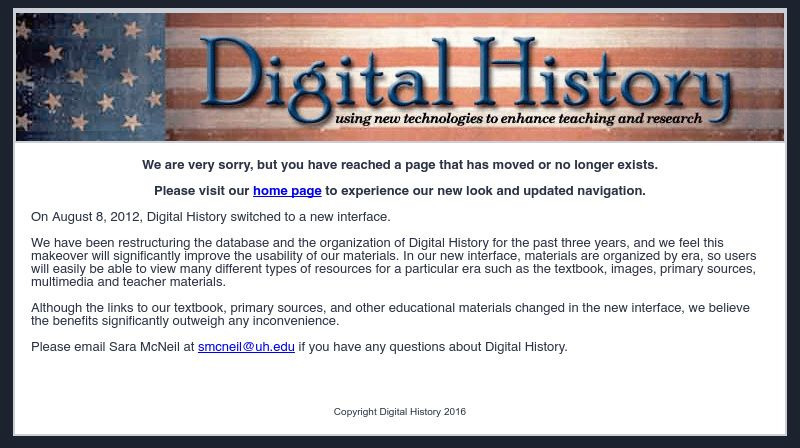
![U.s. Government Publishing Office: Eighth Amendment Further Guarantees in Criminal Cases [Pdf] Primary U.s. Government Publishing Office: Eighth Amendment Further Guarantees in Criminal Cases [Pdf] Primary](https://d15y2dacu3jp90.cloudfront.net/images/attachment_defaults/resource/large/FPO-knovation.png)
